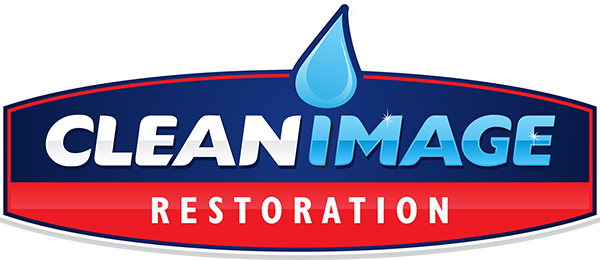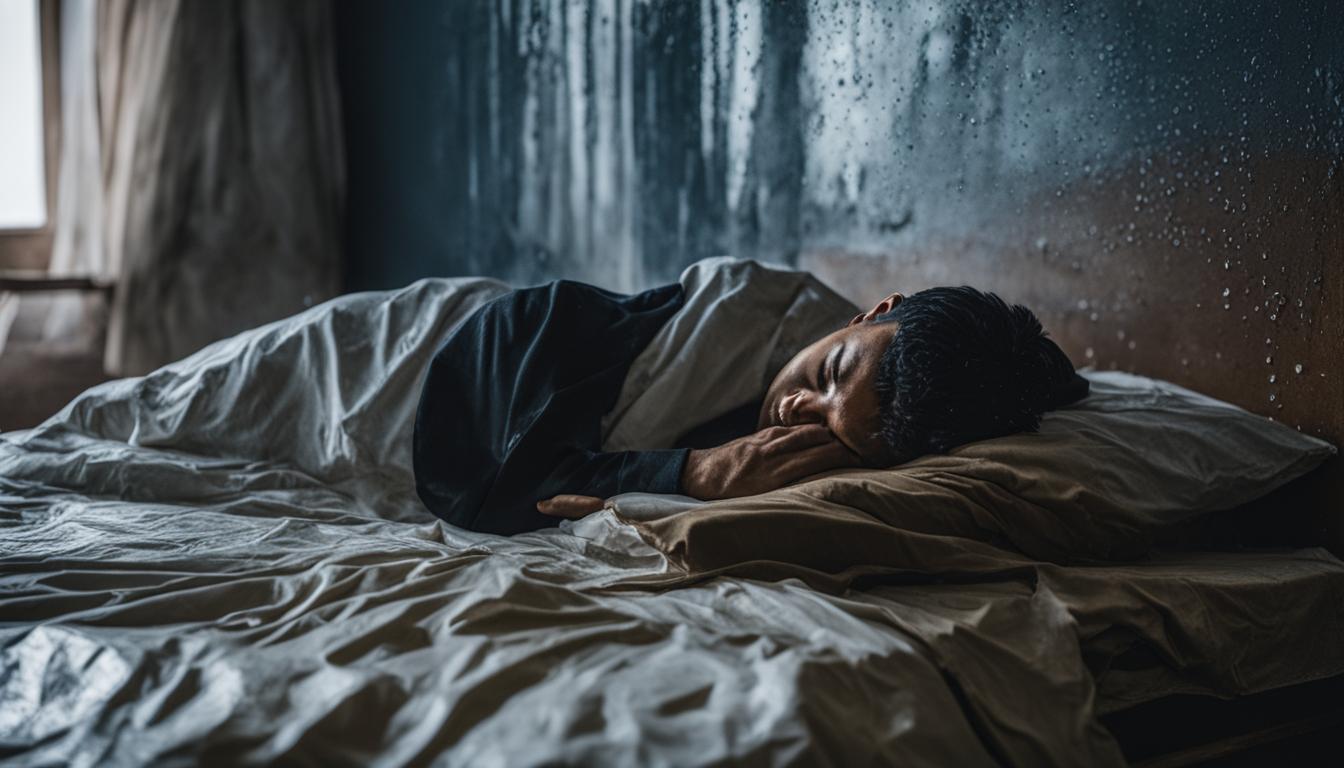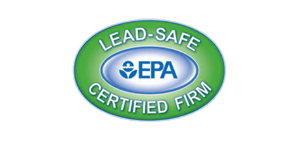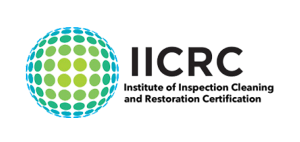Is it safe to sleep in house with water damage? If you’ve experienced water damage in your home, you may be wondering if it is safe to stay overnight. However, sleeping in a water-damaged home can pose potential risks to both your health and property. Even if the water damage seems minimal, it is crucial to take necessary precautions to protect yourself from harm.
In this section, we will explore the risks associated with staying overnight in a water-damaged home. We will also provide expert safety tips to minimize these risks and help keep you and your loved ones safe.
Key Takeaways
- Sleeping in a water-damaged home can pose risks to your health and property
- It is crucial to take necessary precautions to minimize these risks
- Expert safety tips can ensure a safe living environment in a water-damaged home
- Timely remediation and professional assistance are necessary to mitigate water damage and prevent health issues
- Ignoring the potential risks of water damage can lead to more significant health and safety issues down the line
Understanding the Dangers of Water-Damaged Homes
Water damage can cause a host of problems for your home, including posing significant health and safety risks. The longer water damage goes untreated, the more likely it is that these problems will arise.
One of the dangers of water-damaged homes is the impact on structural integrity. When water seeps into the foundation or walls, it can compromise the stability of your home. Poor structural integrity can lead to collapses, which can be devastating.
Another risk of water-damaged homes is mold growth. Mold thrives in damp environments, and it can quickly spread throughout your home. Exposure to mold can cause a range of health issues, including respiratory problems, allergic reactions, and even severe infections. As mold can grow rapidly within 24-48 hours of water damage, it’s important to seek professional help for remediation.
It’s also essential to be aware of any health hazards that can arise from water damage. Apart from mold issues, excess moisture from water damage can create a breeding ground for bacteria and viruses, leading to respiratory issues and infections. Moreover, volatile organic compounds (VOCs) can be released from the water-damaged building materials, and this can cause significant health problems if inhaled.
If you suspect that your home has water damage, it’s important to address the problem promptly and take necessary safety measures to avoid any potential hazards.
The Impact of Moisture on Indoor Air Quality
Exposure to moisture can have a significant impact on indoor air quality in water-damaged homes. When excess moisture is present, it creates a breeding ground for bacteria, viruses, and other harmful microorganisms that can cause health problems. According to the Centers for Disease Control and Prevention (CDC), indoor dampness and mold have been linked to respiratory infections, asthma, and other respiratory problems.
In addition, water damage can cause the release of volatile organic compounds (VOCs) from water-damaged materials, including building materials, furniture, and carpets. VOCs can have various negative health effects, including irritation of the eyes, nose, and throat, as well as headaches, nausea, and damage to the central nervous system.
To mitigate the negative impact of moisture on indoor air quality, it is essential to address water damage promptly. This includes identifying the source of the moisture and taking steps to repair the damage. Additionally, removing water-damaged materials and properly ventilating the affected area can help to improve air quality and reduce the risk of health problems.
Safety Precautions for Sleeping in a Water-Damaged Home
If you find yourself in a situation where you must sleep in a water-damaged home temporarily, it is essential to take certain safety precautions to protect yourself and your loved ones. Here are some practical tips to consider:
Address electrical hazards: Water damage can pose significant electrical hazards, so it is crucial to turn off the power to the affected area before entering. If you are unable to do so, contact a professional electrician.
Implement temporary solutions: Use temporary solutions to minimize the risk of accidents, such as placing non-slip mats on wet surfaces to prevent slip-and-fall injuries.
Wear protective gear: It is essential to wear personal protective equipment, such as gloves, boots, and face masks, to reduce exposure to toxic elements and microorganisms in the affected area.
Avoid contaminated water: It is crucial to avoid all contaminated water sources, whether due to sewage backups, flooding, or other water damage sources. Contaminated water can cause severe health issues, including infections and diseases.
Remember, safety should always be a top priority when dealing with water damage. Seek professional help whenever possible and follow safety protocols to reduce risks and protect your health and property.
Steps to Remediate Water Damage and Create a Safer Environment
Remediating water damage is essential to protect your health and property. Here are the necessary steps to remediate water damage and create a safer living environment:
| Steps | Description |
|---|---|
| Step 1: Address the Water Source | The first crucial step is to identify and address the water source to prevent further damage. Repair leaks, fix broken pipes, and stop the water source to prevent further water damage. |
| Step 2: Seek Professional Help | Consider seeking professional help to assess the extent of the water damage. Professional restoration companies have the expertise, experience, and equipment to handle the situation safely and efficiently. |
| Step 3: Proper Drying Process | Proper drying is key to preventing further damage and mold growth. Use professional-grade dehumidifiers, air movers, and moisture detection equipment to remove all excess water and moisture effectively. |
| Step 4: Mold Remediation | Mold growth can be dangerous for your health and can spread quickly. Professional mold remediation ensures that all mold is removed safely and efficiently. Avoid disturbing the mold to prevent its spread and release. |
Following these steps can remediate water damage and create a safer living environment. It’s crucial to seek professional help and not attempt to do everything yourself. Also, remember to emphasize safety while performing any remediation or cleaning tasks.
Conclusion
It is crucial to prioritize your safety and health when dealing with water damage in your home. Staying overnight in a water-damaged home can pose severe risks to your health and property, including potential health hazards, structural damage, and mold growth.
If you find yourself in a situation where you must temporarily sleep in a water-damaged home, take the necessary precautions to minimize risks. Address electrical hazards, avoid contaminated water sources, and be cautious of slip-and-fall hazards.
However, the most effective way to ensure your safety is to seek professional help to remediate the water damage thoroughly. Trained professionals will assess the extent of the damage, identify the source of the water, and implement proper drying procedures to prevent further damage. Additionally, they will ensure mold remediation to prevent any long-term health problems.
In conclusion, prioritize safety and health when dealing with water damage in your home. Address the issue promptly, seek professional help, and take the necessary precautions to minimize risks. By doing so, you can create a safer living environment for you and your family.
FAQ
Can I sleep in my house with water damage?
It is not recommended to sleep in a water-damaged home. There are several risks associated with staying overnight, including potential health hazards and compromised structural integrity.
What are the risks of staying overnight in a water-damaged home?
Staying overnight in a water-damaged home can expose you to various dangers. These include respiratory issues due to mold growth, allergic reactions to damp conditions, and potential injuries from electrical hazards or slip-and-fall accidents.
How does water damage impact indoor air quality?
Water damage can severely impact indoor air quality. Excess moisture creates an ideal environment for bacteria, viruses, and other harmful microorganisms to thrive. Additionally, water-damaged materials release volatile organic compounds (VOCs), which can negatively affect your health.
What safety precautions should I take if I have to sleep in a water-damaged home temporarily?
If you must sleep in a water-damaged home temporarily, it is crucial to take certain safety precautions. Address electrical hazards promptly, implement temporary solutions to minimize accidents, be cautious of wet surfaces to prevent slip-and-fall incidents, and avoid using or consuming water from contaminated sources.
What steps should I take to remediate water damage and create a safer environment?
To remediate water damage and create a safer environment, it is recommended to seek professional help. They will assess the water source, determine the extent of the damage, and perform proper drying procedures. Mold remediation is also essential to prevent further health issues.









